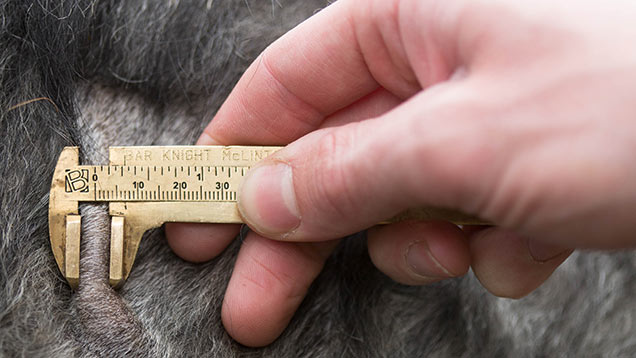Defra clamps down on late bovine TB tests
 © Tim Scrivener
© Tim Scrivener Farmers in England who are late with compulsory TB testing can expect to lose hundreds of pounds off their CAP payments.
From next year, further tough penalties will be introduced for late bovine TB testing as part of government plans to rid the country of the disease.
From 1 January 2015, penalties for late TB tests will be extended so that farmers who fail to meet their testing deadline will face a loss of part of their common agricultural policy (CAP) scheme payments.
The rules will apply if a farmer receives a test notification letter from the Animal and Plant Health Agency (APHA).
In a further move to eradicate TB, all cattle herds in the part of Cheshire that falls within the area classified as at the “edge” of the disease will require whole-herd testing every six months.
The extension of penalties to a wider range of overdue TB tests builds on the penalties for overdue TB surveillance tests introduced in January, which led to about a 60% drop in late tests.
See also: Welsh impose tough penalties for missed TB tests
More details on the tougher penalties for late TB tests, including percentages to be reduced from CAP payments, will be announced soon. But it is expected that the UK government will follow the Welsh model announced last month.
Farm minister George Eustice said: “Improving cattle movement controls and the effectiveness of testing is an important part of our strategy to eradicate bTB in England.
“Cheshire is an area of the country where bovine TB is spreading, so we will introduce six-monthly surveillance tests to help us keep ahead of the disease.
“We will also extend our approach to ensuring that testing takes place in a timely way.”
An increase in the frequency of testing herds for TB in Cheshire, which will first apply only for 2015, aims to make testing in the area more structured.
Defra said six-monthly testing will help to identify disease sooner and prevent further TB spread within and beyond Cheshire.
Minette Batters, NFU deputy president, said it was crucial for disease control that TB tests were carried out on time and the vast majority of farmers were already doing this.
But she stressed that while control of this disease is absolutely essential, the penalties should not be enforced as a “blunt instrument”.
For example, sometimes farmers have arranged to get a test done on time but have been unable to do so for reasons beyond their control, like no vet being available or a vet cancelling an appointment.
Mrs Batters said: “We have raised concerns with the Rural Payments Agency (RPA) about whether they are actually checking the information linked to late tests to see if there are any genuine extenuating circumstances or simply fining all farmers who are late with a test.
“We have also raised concerns with Defra about whether veterinary practices and APHA staff are providing the RPA with mitigating information in cases where there has been a genuine reason for a delayed test which was beyond the farmer’s control.
“On those occasions when farmers are unable to get tests done on time for legitimate reasons, it is vital that they work with the APHA to make them aware of their situation as soon as they can and to arrange a test as quickly as possible.”
